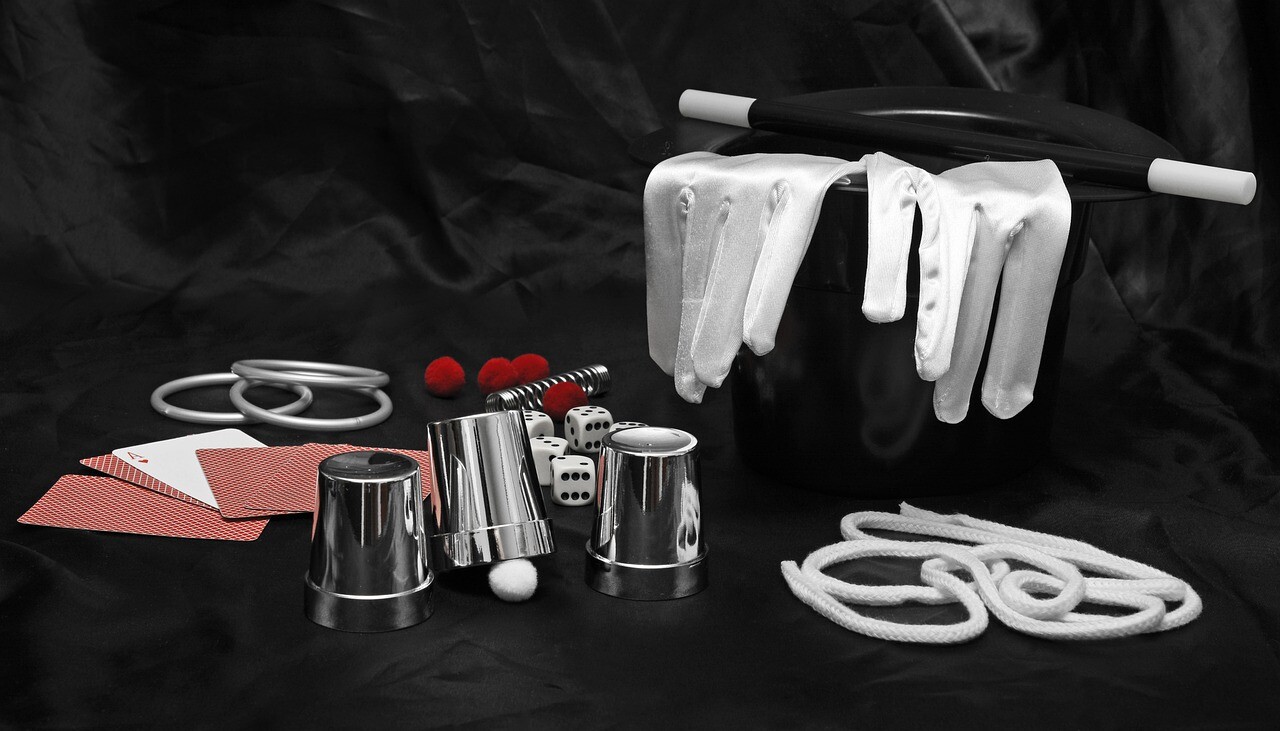5 Businesses and Industries That Are Nothing More Than Smoke and Mirrors

It can be easy to assume that if a business has reached worldwide recognition, it has to be sound. Do you really think that a corporation’s marketing department would do that? Go on the internet and lie? Their job is to make sure that their company exudes the outward image of a grinning, winking businessperson plucked straight from a stock photo labeled “success.” If you really want to know how a company’s doing, look at what they’re saying on the bits of the bottle they’re held legally liable for, and in the statements the SEC cares about. Those may indicate a little more volatility. After all, they don’t make the print fine so you won’t miss it.
Here are five industries that aren’t quite as solid as they seem…
Ridesharing Apps

Okay, first of all, can we discuss the absolute laughability of the term “ridesharing”? Back when the idea of things like Uber were confusing and new, it might have been worth shrugging about. Now, when pretty much everybody has a clear idea of what the actual interaction of calling an Uber involves, it makes no sense. I’m “sharing” a ride with… an independent contractor whose job is to drive me where I need to go, preferably silently? It’s not like the guy was on his way to my apartment at 3 a.m. anyways. I would assume that the name, like much of their marketing, is meant to make their business seem like a way to connect people. “Improvised taxis the government doesn’t know about” isn’t nearly as friendly a term.
This all leads into their biggest problem, which is that the way they provided taxi service at stunningly low cost was to… not make money. You’d think that given its perpetual hot ticket stock status, they were printing money, when the opposite is true. Or at least was, up until this very year, when they finally recorded their first profit ever. A profit that may not last, since the other half of their business model is basically labor loopholes, carefully shaping rider rules so that they could claim that a worldwide taxi fleet officially employs zero drivers. Now that the government has finally looked them over and said “it sure seems like you guys have employees,” their house of cards, one that’s standing without assistance for the first time ever, is trembling like a leaf in autumn.
Organic Food

If you want to launch an industry with the least amount of questions possible, aim for the guilt gland. Prop up your new option as something that improves the world and anybody that criticizes it gets shoved into the category of contrarian asshole. Sure, it might eventually come out that you’re sitting on a throne of shit, but by that point, you’ll have enough market saturation to keep people confused about it for a couple more years. If buying something makes someone feel like a better person, they’re naturally not going to have much interest in finding out they aren’t.
That seems to be a big part of what the American organic food industry was built on. Imagery of gently cradled chicken and hand-hoed fields producing carrots that might as well have been personally pulled from Gaia’s womb. Often, the two most prominently touted advantages are that it’s healthier, and that it uses no pesticides. The first is questionable and the second is straight up false. Organic farmers absolutely use pesticides, they just can’t be synthetic. As for health, there’s not much of any indication of notably higher nutrition from organic food. So next time you’re at the grocery store, don’t feel bad about buying the cheaper broccoli, since all you’re really missing out on is a chic sans-serif logo.
Wellness and Cleanses

The business may be bullshit, but you have to give a hand to the idea of “cleanses,” “detox” and connected wellness hooey for how perfectly they threaded a bunch of negative emotions together. They braided up a puppet string from fear, guilt and regret, and managed to yank everyone who’d had one too many drinks or French fries into a coolly lit white storefront to buy a way to flush fake poison out of their system. The way they put it, every well whiskey shot you’d ever had was clinging to some overhang on your insides, and the only way to knock it loose was to choke down activated charcoal.
The entire idea of jumpstarting your body’s detoxification with blended celery is pure horse pucky. Your body has its own systems for detoxification, and unless you’re chugging gin like a modern day W.C. Fields, they work just fine with or without cayenne pepper. Do cleanses make you feel better? I mean, they could, if you’re used to starting every day with a short stack of chocolate-chip pancakes, but that has more to do with boring, general health than some magic potions. Even worse, if you’re unthinkingly throwing back the popular detox ingredient of activated charcoal in pursuit of a spotless gut, you could be de-activating any important medications you may take.
Facebook Video

Now this one, for the purpose of both clarification and any legal department reading this, isn’t necessarily an ongoing or current bit of dishonesty. At this point, though, we do know that for a period of time, it seems that Facebook may well have been knowingly inflating video view metrics on its platform. Something that’s not exactly cool anytime, but given that it was happening while “pivot to video” was the hottest three-word phrase in online media, is an absolute disaster.
Given that in the years in question, I was working at another online publication with an extensive video arm, I can say that it was a pretty fucking big deal. How much of a big deal, we’ll have to leave in to the calculations of the class-action lawsuit coming with it. What I will say is that, for a platform that’s already famously cagey about what you’re allowed to know, if the few numbers you were actually allowed to see were fake, it’s a hell of a salted wound. If you imagine a bakery pivoting entirely to making cinnamon rolls because they were told they were their most popular pastry, only to find out people secretly fucking hated cinnamon rolls the whole time, you’re starting to get the picture.
Magic

Well, yeah, this one’s fine. You don’t want to see the guy climbing out of the back of the sword box, do you?
Eli Yudin is a stand-up comedian in Brooklyn. You can follow him on Twitter and Instagram at @eliyudin and listen to his podcast, What A Time to Be Alive, about the five weirdest news stories of the week, on Apple Podcasts, Spotify or wherever else you get your podcasts.